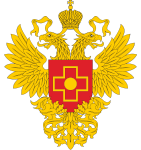
This article is an open access article distributed under the terms and conditions of the Creative Commons Attribution license (CC BY).
ORIGINAL RESEARCH
Specifics of the workload-dependent dynamics of psycho-emotional exhaustion among medical staff of a COVID hospital
Burnasyan Federal Medical Biophysical Center, Moscow, Russia
Correspondence should be addressed: Svetlana E. Nazaryan
Marshala Novikova, 23, Moscow, 123098, Russia; ur.xednay@nayrazan-atevs
Author contributions: VI Sedin — study planning, data analysis and interpretation; SE Nazaryan — literature analysis, data collection, processing of the results; AS Samoilov — study planning.
Compliance with the ethical standards: the study was approved by the Ethical Committee of A.I. Burnazyan Federal Medical Biophysical Center (minutes #34 of April 7, 2020). All participants signed the informed consent form agreeing to psychological examination and rehabilitation program activities.
In the beginning of 2020 there appeared an urgent need for substantial advancement of the medical and psychological support for medical personnel involved in medical care provided to patients with the new coronavirus infection (COVID-19) in hospital settings. This need originated from the necessity to diagnose the risks of doctors developing mental states that adversely affect their professional performance and, subsequently, lead to disorders. In addition, there are under-researched matters of dependence of the prevalence of destructive mental states on the intensity of workload experienced by doctors in the "red zones", where the risk of patient fatalities is high. This study aimed to investigate the workload-dependent dynamics of psycho-emotional exhaustion among the medical staff of a COVID hospital. We analyzed the psychological tests (MBI, Maslach Burnout Inventory) that 121 people completed during a four-week assignment in the "infectious" zone and two weeks in the observation department. Seventy-nine doctors comprised the heavy workload group and 42 were in the moderate workload group. The study showed that healthcare workers experiencing heavier workloads exhibit high values of the psycho-emotional exhaustion indicators more often. We registered significant differences (р ≤ 0.05) by the Emotional Exhaustion scale at the third and fifth weeks of the study. By the fifth week, i.e., when the assignment in the "infectious zone" was over, heavy workload group had the median of 25 (23.5; 27), while in the moderate workload group it was 14 (14; 15), which is 56% lower.
Keywords: healthcare workers, psycho-emotional state, COVID-19, professional burnout, psychological testing, psycho-emotional exhaustion, emotional exhaustion, depersonalization, professional degradation